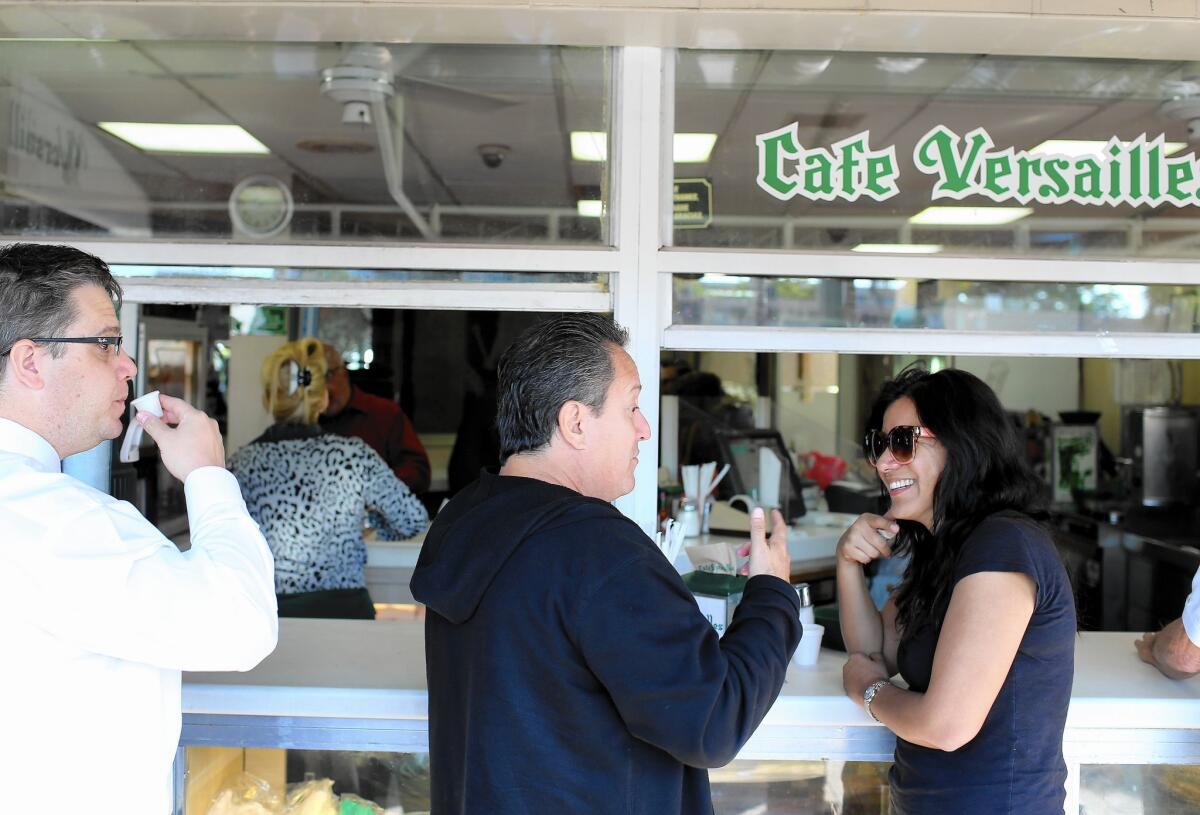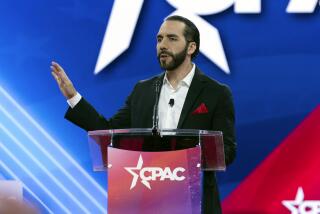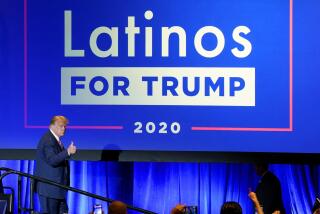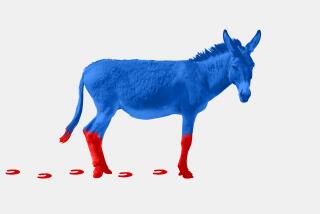At Miami cafe, Cuban Americans come for strong coffee and political talk

Even before the sun poked through the skyline, the espresso machine at the landmark Versailles coffee shop in Little Havana whirred with activity.
Sleepy-eyed men waited patiently around the takeout window, or la ventanita, for tiny cups of Cuban coffee that are poured slowly and with care by women in forest green uniforms on the other side of the counter.
One older man stood alone reading the morning Spanish-language newspaper. Another scrolled through his cellphone.
Strike up a political conversation with any one of them, and it’s like plunking a quarter into a jukebox that spirits the place to life.
Some say politics can be a contact sport. Here under the palm trees at the cafe’s patio along busy Calle Ocho, it more resembles a long narrative poem that begins with the issue of the day and meanders into the familiar life stories that have come to define south Florida’s Cuban American community.
“Versailles is like the center of Cuban exile life in Little Havana,” said Jose Sanchez-Gronlier, who took a break one morning from his cortadito, an espresso cut with steamed milk, to provide an impromptu history of the place.
Every time there’s a rumor that Fidel Castro has died, he said, people make their way to Versailles. On the day that Sen. Marco Rubio (R-Fla.) came to town to announce his presidential bid, there was plenty to discuss. President Obama had just met with Raul Castro as part of the administration’s diplomatic opening to Cuba. Hillary Rodham Clinton had announced her presidential campaign the day before.
No prodding was needed: Opinions were as strong as the Cuban coffee.
Miguel Coppola, 75, stood on the patio pavement near swaying palms to enjoy guava pastry, crumbs spilling onto the sunglasses hanging from his neck. He quickly assessed the increasingly crowded field of potential or declared presidential candidates: Jeb Bush, Clinton, Rubio and the rest.
Rubio, whose political career started on the West Miami City Commission, has the hometown advantage as the son of Cuban immigrants. But he was not the automatic favorite among the men sipping their morning coffees.
“He’s too passionate,” said Coppola, who immigrated to the U.S. in 1961 after the Castro revolution. Like many from his generation, he prefers Republicans to Democrats because the latter’s leftward tilt reminds him too much of the government he left behind. “He needs more time. Look at the one we have now, Obama.”
Because Versailles, established 1971, has become so well known as an epicenter of Cuban American life, it was only a matter of time before a television camera crew popped in and eyeballed Coppola, in his powder-blue guayabera-like shirt and tan slacks. He was quickly whisked aside for an interview.
By the lunch hour, long lines began to form in the restaurant as nearby office workers settled in for something more substantial than the warm croquettes served from the window.
But it was at the outside counter, in the increasingly muggy Miami heat, where the men — and they are mostly men — engaged in enthusiastic, almost ceaseless conversations over the click-click-click of the grinder dropping coffee into the basket of the espresso grip and the swoosh of the steamer heating milk.
Pose a simple question — whom do you like for president? — and it opened up an oral history of wrongs committed by the Castro government, harrowing accounts of fleeing the country and hopes of a better life in the United States.
These stories have shaped a generation of conservative and Republican voters for whom the Cold War never really ended and remains seared into their personal lives.
The Republican Party’s hold on Cuban Americans, though, is changing. A younger generation born in the United States hears that story line handed down from their parents and grandparents, but it’s not a hardship they personally endured.
Polling shows that Cuban Americans are almost equally divided on U.S. policy toward Cuba, a shift from just a generation ago when only 13% favored normalizing relations with island government as the Obama administration is now trying to do.
The number of Cuban Americans identifying as Democrats doubled over the decade, to 44%, according to the Pew Research Center, and those calling themselves Republicans dropped below 50%.
A young police officer who just wanted to wait for his morning coffee in peace without talking politics took a pass when asked for his thoughts. Another, younger man had more interest in enjoying his ham sandwich than in discussing Bush, Rubio or Clinton.
More recent arrivals, who are coming for economic rather than political reasons, sometimes have different views than those who came before them, leading to differences of opinions among regulars at Versailles.
Juan Carlos Cabrera, 33, left his young son and daughter in Cuba eight years ago to find work in the U.S., riding the open sea for 12 days with others on a boat he built.
He likes Clinton because he believes opening relations with Cuba will be better for those still remaining on the island, including the family he left behind and hopes to see again. He plans to become a citizen this year, which would make him eligible to vote in 2016, and he’s leaning Democratic.
The crowd outside ebbed and flowed. Conversations intensified, then drifted. Ducking inside to escape the heat, Sanchez-Gronlier, an attorney who also hosts a local AM talk radio show, was constantly approached by other customers, mostly fans offering words of encouragement.
Sanchez-Gronlier, who wears his black hair combed back, often serves as a voice for the generation of immigrants like him who came after the 1959 revolution. He acknowledged that younger Cuban Americans are veering away from conservatism.
“It’s changing in polls, but the poll that matters is the vote,” he said.
Still wearing his wrap-around sunglasses, he also served as an emissary for the pastry case just inside the restaurant door, explaining the differences between the square (guava), triangle (cheese) and round (meat) turnovers heating under a lamp.
Sanchez-Gronlier then pointed out a sign above the counter, posted to remind customers in the cramped lobby that Versailles has plenty of space for politics — on the patio.
“Se ruega a todas las personas que vienen a conversar que lo hagan fuera de la cafeteria gracias” — “To all of those who come to talk, please do it outside of the cafe thanks.”
Twitter: @lisamascaro
More to Read
Start your day right
Sign up for Essential California for news, features and recommendations from the L.A. Times and beyond in your inbox six days a week.
You may occasionally receive promotional content from the Los Angeles Times.







